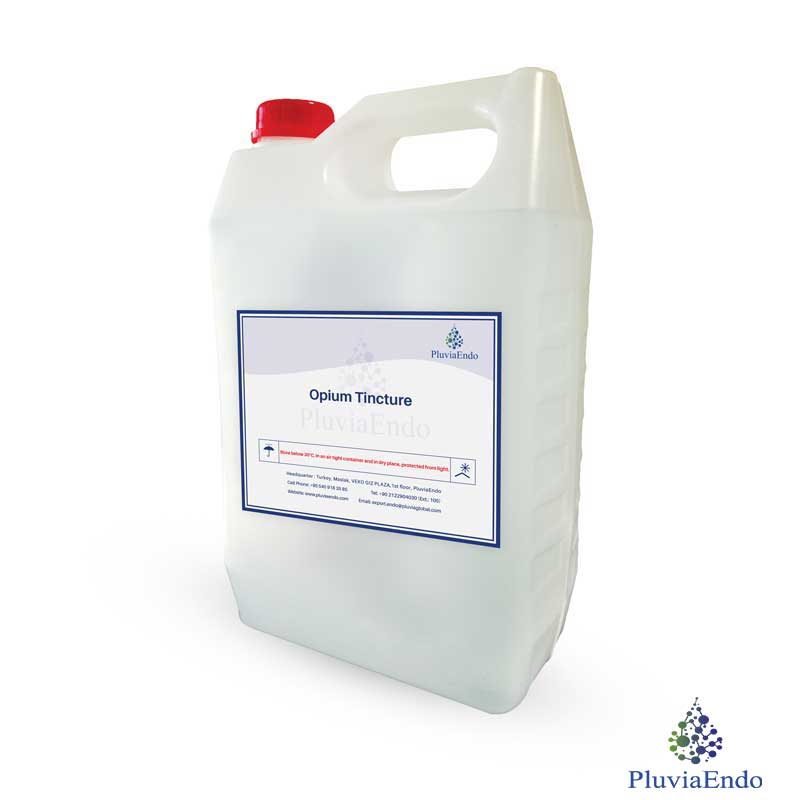Opium tincture, a derivative of the opium poppy plant, has a rich history of medicinal use spanning centuries. In this article, we embark on a journey to unravel the diverse opium tincture uses in healthcare, from its role in pain management to addressing gastrointestinal disorders and enhancing end-of-life comfort in palliative care.
Pain Management with Opium Tincture: Efficacy and Considerations
One of the primary applications of opium tincture lies in the realm of pain management. Known for its potent analgesic properties, opium tincture has been a cornerstone in alleviating moderate to severe pain. Its efficacy in managing pain is attributed to its interaction with opioid receptors in the central nervous system, modulating the perception of pain.
Healthcare practitioners often turn to opium tincture when other analgesic options prove insufficient. It serves as a valuable tool in addressing pain resulting from various medical conditions, ranging from post-surgical recovery to chronic conditions such as cancer.
However, opium tincture use in pain management necessitates careful consideration. Healthcare providers must weigh the potential benefits of pain relief against the risks associated with opioid medications, including the risk of dependence and respiratory depression. Patient education and close monitoring are crucial elements in ensuring safe and effective pain management.
Uses in Gastrointestinal Disorders: Examining Benefits and Risks
Opium tincture’s impact extends beyond pain management, finding application in the treatment of gastrointestinal disorders. Conditions such as severe diarrhea, often unresponsive to conventional treatments, may be addressed with opium tincture due to its ability to slow down bowel motility.
The use of opium tincture in gastrointestinal disorders is not without consideration. While it can offer relief by reducing excessive bowel movements, there is a delicate balance to strike between therapeutic benefits and potential risks, including constipation and nausea. Healthcare providers must carefully assess each patient’s condition and medical history to determine the appropriateness of opium tincture in managing gastrointestinal symptoms.
Use for Diarrhea: Mechanisms of Action and Clinical Applications
Opium tincture’s effectiveness in treating diarrhea is rooted in its ability to impact bowel motility and reduce the frequency of bowel movements. The opiate component in opium tincture acts on the intestinal muscles, slowing down peristalsis and providing relief to individuals experiencing persistent diarrhea.
In clinical applications, opium tincture may be considered when other antidiarrheal medications have proven inadequate. However, due to the potential for side effects and the risk of opioid dependence, its use in managing diarrhea is approached with caution. Healthcare providers carefully assess the underlying cause of diarrhea and the overall health status of the patient before prescribing opium tincture.
Opium Tincture in Palliative Care: Enhancing End-of-Life Comfort
In the realm of palliative care, where the primary goal is to enhance the quality of life for individuals facing serious illnesses, opium tincture emerges as a valuable tool for symptom management. Particularly in cases where severe pain or refractory symptoms impact a patient’s comfort, opium tincture may be employed to provide relief and improve the overall well-being of the individual.
The use of opium tincture in palliative care is not solely confined to pain management. It extends to addressing symptoms such as dyspnea (difficulty breathing), providing a holistic approach to alleviating distressing symptoms. However, the careful titration of opium tincture is essential to achieve optimal symptom relief while minimizing the risk of side effects.
Cough Syrups and Opium Tincture: Tracing Historical Uses and Contemporary Formulations
Historically, opium tincture found its way into various formulations, including cough syrups. The soothing properties of opium tincture made it a sought-after ingredient in concoctions aimed at relieving coughs and associated symptoms.
While contemporary cough syrups are more likely to utilize synthetic opioids or non-opioid ingredients, the historical use of opium tincture in these formulations provides insight into its longstanding reputation for addressing respiratory symptoms. Understanding this historical context helps contextualize the evolution of cough syrup formulations over time.
Opium Tincture and Neuropathic Pain: Insights into Clinical Effectiveness
Neuropathic pain, stemming from damage or dysfunction of the nervous system, poses a unique challenge in pain management. Opium tincture, with its ability to modulate pain perception in the central nervous system, is explored for its potential effectiveness in addressing neuropathic pain.
Studies and clinical experiences provide insights into the use of opium tincture as part of a comprehensive approach to managing neuropathic pain. The nuanced nature of neuropathic pain requires individualized treatment plans, and opium tincture may be considered in specific cases where other interventions have proven insufficient.
Opium Tincture as an Antidiarrheal Agent: Clinical Considerations
The antidiarrheal properties of opium tincture make it a potential option for individuals experiencing persistent diarrhea. However, the clinical considerations surrounding its use as an antidiarrheal agent are multifaceted.
The decision to prescribe opium tincture for diarrhea involves an assessment of the underlying cause of the symptoms, the overall health of the patient, and the potential risks associated with opioid medications. Monitoring for side effects, including constipation and nausea, is crucial to maintaining a balance between therapeutic benefits and potential drawbacks.
Opium Tincture Uses in Veterinary Medicine: Applications and Safety
Beyond human medicine, opium tincture finds applications in veterinary medicine. Its opioid properties make it a consideration for managing pain and certain gastrointestinal issues in animals. However, the use of opium tincture in veterinary settings requires careful attention to species-specific considerations, dosage adjustments, and potential side effects.
Veterinarians may explore opium tincture as part of a comprehensive
pain management plan for animals, particularly in cases where other analgesic options may not provide sufficient relief. Safety considerations and close monitoring are paramount to ensuring the well-being of the animal patient.
Opioid Rotation and Opium Tincture: Strategies in Pain Management
In the complex landscape of pain management, opioid rotation strategies are employed when a change in opioid medication is warranted. Opium tincture, with its distinct properties, may be considered as part of opioid rotation strategies to optimize pain relief while managing potential side effects.
Opioid rotation involves transitioning a patient from one opioid medication to another, to achieve improved efficacy or reduce side effects. Opium tincture’s inclusion in such strategies requires a thorough assessment of the patient’s response to previous opioid medications and a careful titration process to ensure a seamless transition.
Addiction Treatment: Historical Perspectives
Historically, opium tincture has been considered in the realm of addiction treatment. The use of opioids to manage opioid dependence may seem paradoxical, but historical perspectives shed light on early attempts to taper individuals off more potent opioids using less potent formulations, such as opium tincture.
While contemporary addiction treatment approaches often involve medications like methadone or buprenorphine, understanding the historical context provides insights into the evolving understanding of addiction and the quest for effective treatment modalities.
Regulatory Landscape: Navigating Legal Considerations
The regulatory landscape surrounding opium tincture uses is influenced by legal considerations and restrictions. Due to its opioid nature and the potential for misuse, opium tincture is subject to strict regulations to mitigate the risk of diversion and abuse.
Healthcare providers prescribing opium tincture must adhere to established guidelines, and patients receiving this medication are often closely monitored to ensure compliance and minimize the risk of diversion. Understanding the legal framework surrounding opium tincture uses is essential for both healthcare practitioners and patients involved in its use.
Balancing Benefits and Risks in Opium Tincture Uses
In conclusion, opium tincture stands as a multifaceted medication with diverse applications in healthcare. From pain management to addressing symptoms in palliative care, managing diarrhea, and exploring its potential in neuropathic pain, opium tincture offers a range of therapeutic possibilities.
However, the use of opium tincture necessitates a delicate balance between the benefits it provides and the potential risks associated with opioid medications. Close collaboration between healthcare providers and patients, along with vigilant monitoring for side effects, is paramount to achieving optimal outcomes.
Whether employed in human medicine or veterinary settings, opium tincture remains a valuable tool that requires careful consideration and adherence to regulatory guidelines. As we navigate the complex landscape of opium tincture uses, it is essential to prioritize patient safety, individualize treatment plans, and stay attuned to evolving medical practices and regulations. Always consult with healthcare professionals for personalized advice and guidance regarding the use of opium tincture, considering its potency and potential risks.









